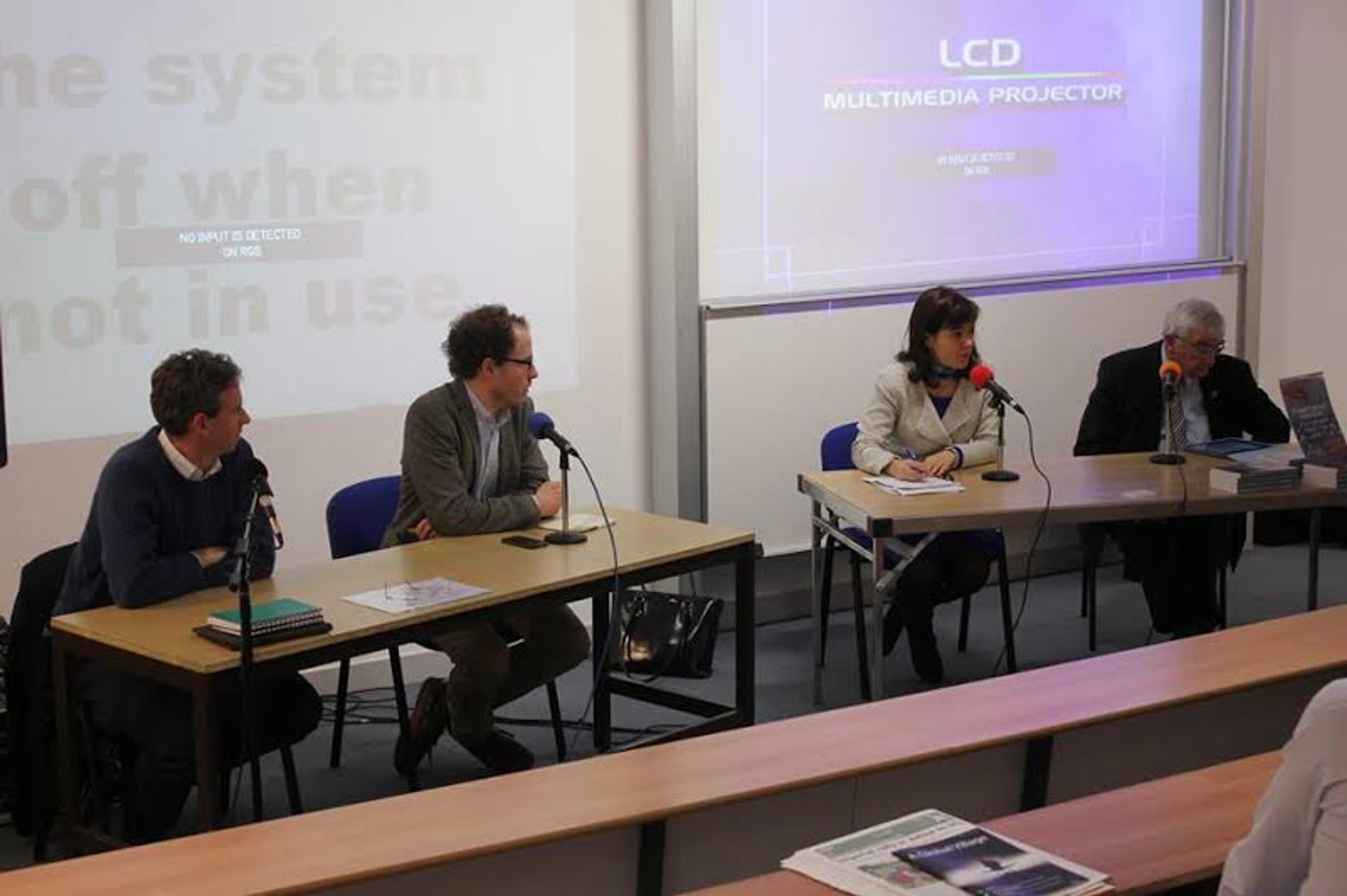How to run the most effective charity in the world
On Thursday 5th December I attended a panel discussion on what makes a charity effective, hosted by the African Development Project at Imperial College London. The speakers included the directors of two of Giving What We Can's top charities: Rob Mather of the Against Malaria Foundation and Prof Alan Fenwick of Schistosomiasis Control Initiative, as well as Caroline Fiennes of Giving Evidence; an organisation which advises donors and charities on improving performance by making evidence-based decisions.

The discussion began with each speaker talking about what makes an effective charity, before opening to questions from the floor.
Rob Mather, AMF
Rob presented a four-point overview of what he believes makes AMF so effective, and stressed that these principles can be adopted by pretty much any charity to become more effective:
- Focus on impact should drive what you do. This means measuring results and reporting your findings.
- Efficiency drives how you do it. When setting up AMF, Rob was keen to get things for free where possible, approaching people he knew at businesses to enlist their help, for example PWC, which audits the charity for free.
- Accountability ensures that promises are delivered. AMF checks that nets have been distributed as intended, and that they continue to be used. The key to ensuring that nets are distributed and used as intended is engaging with communities and stakeholders and educating them about the whole process: why the nets are important and how they will prevent malaria.
- Transparency builds confidence among stakeholders. Thanks to the Internet, it's very easy for charities to be transparent and Rob argues that they should present their accounts in a user-friendly way.
Prof Alan Fenwick, Schistosomiasis Control Initiative
Alan talked about how and why SCI is so effective.
Initially, SCI was funded by the Gates Foundation, but as this funding began to dry up, SCI was spotted by GiveWell and Giving What We Can. Alan believes that smaller charities such as SCI and AMF are more effective than some of the biggest, most famous charities. The key reason SCI is so effective is that donations are highly leveraged: it has persuaded a big pharmaceutical company to donate all the drugs needed, so what donors are actually paying for is for SCI to advocate with ministers in recipient countries and to educate people on why they need the drugs. For example, schistosomiasis is not really a problem in cities, so ministers there might overlook the importance of the drugs.
Caroline Fiennes, Giving Evidence
Giving Evidence works across the whole of the charitable sector and Caroline argues that GiveWell's method of analysis, focusing on QALYs, only works well for a certain kind of charity. There are many organisations doing vital work towards things like systemic and societal change which can't be measured in this way. She gave the example of Stonewall, which advocates for gay rights, arguing that you can't evaluate its work in terms of units of good achieved. Caroline took issue with the concept of "the most effective charity in the world" arguing that different charities are needed to achieve different things. That said, she does think it is essential to compare charities as we have finite resources and an effectively infinite need.
If you are interested in getting a comprehensive picure of Caroline's views on effectice giving, she recently published a book on the topic. You can read our review of her book here.
Questions: the highlights
Is it fair to use GiveWell's metric for all charities?
Rob: The metric is only appropriate for certain charities. He is excited to see what will come of GiveWell Labs, the initiative which is moving beyond (relatively) simple-to-quantify areas to look at things like scientific research and political advocacy. Rob thinks that the focus for any charity should be to work on processes which make them more cost-effective, whatever it is they are doing.
How do you collect data and measure your work?
Rob: AMF works with partners in-country to collect data. It's actually incredibly cheap to do. Local health providers go round a village knocking on doors to find out exactly how many nets are needed in each home.
What about the use of surveys and opinion polls?
Caroline: Caroline argues that what a lot of charities are essentially undertaking is social science research, but they often lack rigour. For example, a charity might use a survey to chart attitudes before and after a campaign, but too often they will infer causation from correlation. To gather meaningful evidence, these organisations need to carry out randomised control trials.
How far can charities be compared to businesses? Can charities work on branding to become more successful?
Rob: Charities should strive to be "business-like" in that they should be professional and efficient, trying to maximise outcome.
Caroline: While charities can learn from businesses, Caroline feels that the analogy is overplayed. There are fundamental differences between the two: businesses produce private benefit and are driven by financial results, whereas charities are aiming to achieve varied and complex outcomes for public benefit and are in the business of giving things away, including intellectual property.
If you could change one thing about the way the charity world works, what would it be?
Caroline: Donations being made based on evidence and the value of what is actually being delivered, rather than on how famous a charity is.
Alan: There are certain organisations and campaigns which bring in vast sums of money every year, for example Comic Relief and Children in Need, who don't tell donors exactly what is being achieved with their money. Greater accountability and transparency is needed.
Rob: Greater accountability is needed. Charities should measure and report to donors exactly what is being achieved with their money.